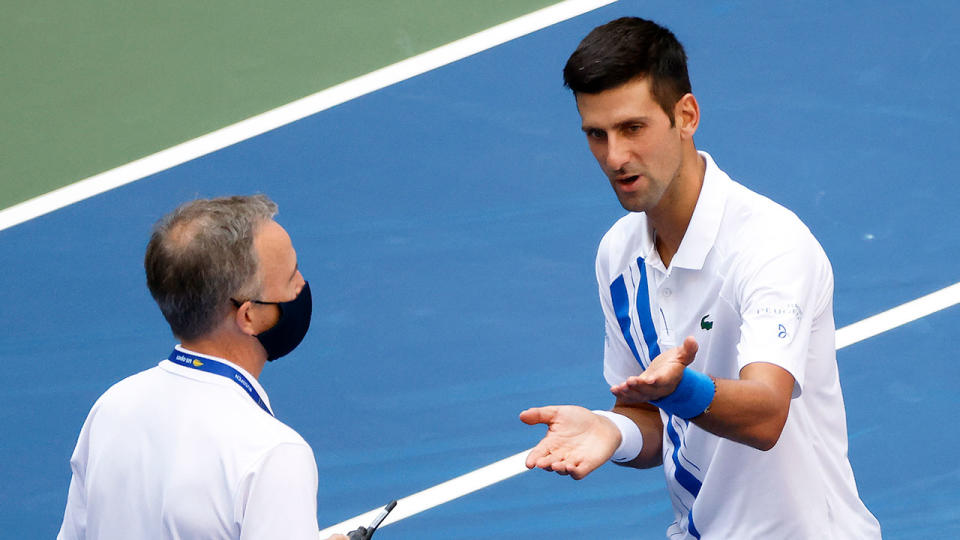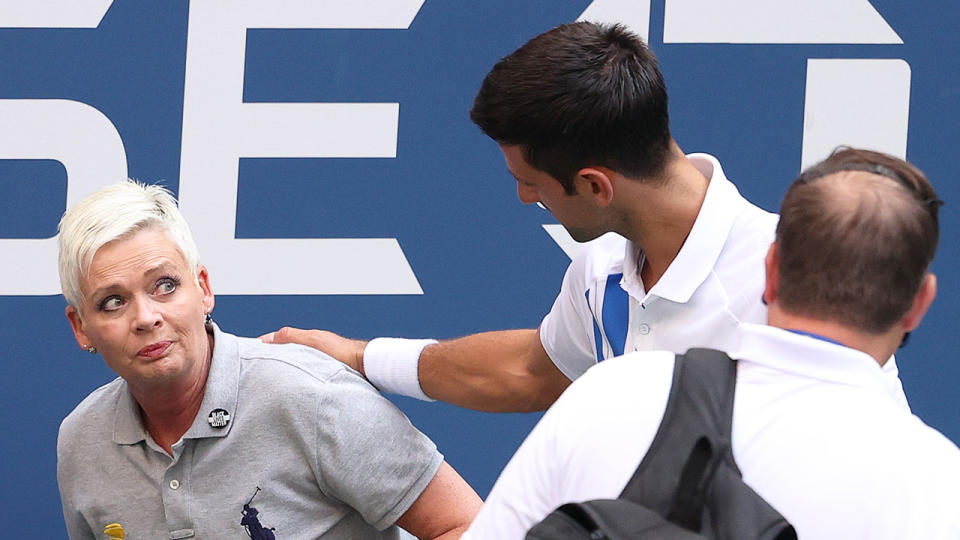The proof Novak Djokovic doesn't understand one key fact

It's been a tumultuous year for Novak Djokovic to say the least.
The World No.1's previously undefeated year came crashing down at the US Open when he was disqualified for hitting a tennis ball into the throat of a line judge.
'HEALTH IS A PRIORITY': Ash Barty drops fresh bombshell
'DISGUSTING': Novak Djokovic scandal takes 'shameful' twist
Djokovic was also the spearhead of the infamous and ill-fated Adria Tour - a tennis event he set up during the shutdown of the sport because of the coronavirus crisis.
The event proved a disaster, with Djokovic forced to defend himself from widespread criticism after several players, including himself, tested positive for COVID-19 after being seen out partying and flaunting social distancing protocols in force around the world.
“I am so deeply sorry our tournament has caused harm,” he said after the event.
“Everything the organisers and I did the past month, we did with a pure heart and sincere intentions.
“We believed the tournament met all health protocols and the health of our region seemed in good condition to finally unite people for philanthropic reasons.
“We were wrong and it was too soon.”
Good intentions or not, the reckless actions of Djokovic and his fellow players put others at risk and the condemnation that followed was swift and justified.
Before the US Open got underway, Djokovic sat down with Christopher Clarey of the New York Times to clear the air once and for all about the Adria Tour.
“We tried to do something with the right intentions,” Djokovic said.
“Yes, there were some steps that could have been done differently, of course, but am I going to be then forever blamed for doing a mistake?
“Whether it’s fair or not, you tell me, but I know that the intentions were right and correct, and if I had the chance to do the Adria Tour again, I would do it again.”
Once again Djokovic defended the consequences of his actions by stressing that the intentions were sound.
It was that exact mindset from the 33-year-old that preceded his stunning disqualification against Pablo Carreno Busta in the fourth round of the US Open.

World No.1 called out over recurring theme
Djokovic pleaded with officials that he never intended to hit the ball into the female line judge, but as the rules clearly state, that intent doesn't make one shred of difference when the consequences of the actions are factored in.
Tennis broadcaster Catherine Whitaker made the assertion after Djokovic's US Open ejection that it had a brutal sense of irony about it.
“I can’t help but hear Djokovic’s words in fact in the pre-tournament interview that Christopher Clarey did with him a couple of weeks ago,” she said on The Tennis Podcast.
“That was probably set up by Djokovic’s people or the ATP as Djokovic’s mea culpa about the Adria Tour … and him doing his version of holding his hands up and trying to put it to bed.
“Actually, he ended up coming off as defensive and focusing on the fact that he had good intentions.
“The fact that he had no ill intent, he only meant well.
“I don’t know whether it’s ironic or apt that his US Open bubble journey has come to an end with an incident which is defined by the fact that his intentions are irrelevant, were irrelevant.”
Djokovic has since been fined $US10,000 for unsportsmanlike conduct.
That amount is half the $US20,000 that a player can be docked for violating the unsportsmanlike conduct clause of the grand slam rule book.
The $US10,000 is in addition to the $US250,000 in prize money the US Tennis Association said the world No.1 would forfeit after being disqualified in the first set of his fourth-round match on Sunday.
Djokovic, who failed to front the media after the default, later posted an apology on social media.

